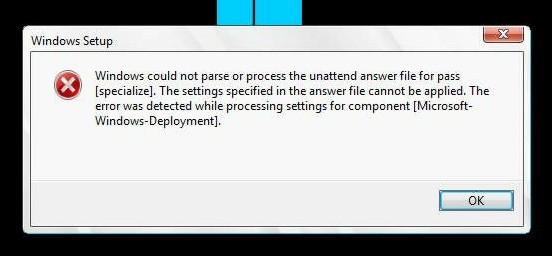You can add macros to the template. Macros enable to specify additional settings for template installation. During the operation, the priority of the settings specified with macros will be higher than the settings specified in the DCImanager 6 platform.
Network configuration macros
$GATEWAY — default gateway.
$GATEWAYv4 — IPv4 default gateway.
$GATEWAYv6 — IPv6 default gateway.
$IP — primary IP address.
$IPv4 — IPv4-address.
$IPv4ALIASES — alias IPv4-addresses (separated by spaces).
$IPv6 — IPv6-address.
$IPv6ALIASES — alias IPv6-addresses (separated by spaces).
$NAMESERVER — primary DNS-server.
$NAMESERVERS — DNS-servers.
$NAMESERVERv4 — DNS-server for IPv4.
$NAMESERVERv6 — DNS-server for IIPv6.
$NETMASK — network mask of the primary IP address.
$NETMASK_SHORT — network mask in the form of a prefix.
$NETMASKv4 — IPv4 network mask.
$NETMASKv6 — IPv6 network mask.
$TMPIPv4 — temporary IPv4 address that will be used during OS deployment:
- "true" — use;
- "false" — do not use.
$WIN_MAC — a MAC-address that is used to define the primary interface of the server during Windows OS setup.
Server configuration macros
$HOSTNAME — hostname.
$PASS — root password.
$PASS_CRYPT — md5 password hash.
$SSHPUBKEYS — list of SSH keys. The keys are added in /root/.ssh/authorized_keys.
Server diagnostics and recovery macros
$CGI_IPMI_CHECK — CGI that checks BMC after configuration. It is used in the diagnostics templates.
$CLEAR_HDD — clear hard drives. This macro is used in diagnostics templates:
- "YES" — perform;
- any other value — do not perform.
$FULL_HDD_CLEAR — completely clear hard drives. This macro is used in diagnostics templates:
- "YES" — perform;
- any other value — do not perform.
$INITRD — file system. This macro is used for PXE-boot.
$KERNEL — OS kernel. This macro is used for PXE-boot.
$NFS — a path to the NFS-storage with files for the operation. This macro is specified for diagnostics and recovery templates.
$NFSPATH — a full external path (including the IP address) to the NFS-storage with files for the operation. This macro is specified for diagnostics and recovery templates.
Windows OS configuration macros
$LANG — OS localization language.
$PRODUCTKEY — license key.
$SMB_PATHv4 — path to the Samba-storage through IPv4.
$WINNTSETUP — use the WinNtSetup utility. Possible values:
- "yes" — use.
$TIMEZONE — timezone in the tzutil utility format. For example, GMT Standard Time. For a complete list of time zones, see the Microsoft Windows documentation.
OS installation macros
$DISK_LAYOUT_FILE — link to the disk partitioning file. It is used for custom partitioning of the disk.
$HDD_RAID — type of software RAID for configuration. This macro is used in templates that support RAID:
- no_raid — do not configure RAID;
- raid_0;
- raid_1;
- raid_5;
- raid_10.
$HTTPPROXY — HTTP-proxy. This macro is used for package cache during OS deployment.
$HTTPPROXYv4 — HTTP-proxy for IPv4. This macro is used for package cache during OS deployment.
$HTTPPROXYv6 — HTTP-proxy for IPv6. This macro is used for package cache during OS deployment.
$MIRROR — OS repository mirror.
$OSINSTALLINFO_HTTP — a URL to get the information for OS deployment through HTTP.
$OSINSTALLINFO_HTTPS — a URL to get the information for OS deployment through https.
$OSINSTALLINFO_HTTPSv4 — a URL to get the information for OS deployment through HTTPS and IPv4.
$OSINSTALLINFO_HTTPv4 — a URL to get the information for OS deployment through HTTP and IPv4.
$OSINSTALLINFO_SHORT_HTTP — a short URL to get the information for OS deployment through HTTP.
$SHAREDIR_FILE — directory URL through HTTP.
$SHAREDIR_FILEv4 — directory URL through HTTP and IPv4.
$SHAREDIR_FILEv6 — directory URL through HTTP and IPv6.
OS post-installation macros
$AFTER_INSTALL_SCRIPT_HTTP — URL to the script that starts through HTTP after installation.
$AFTER_INSTALL_SCRIPT_HTTPS — URL to the script that starts through https after installation.
$FINISH — URL that will be called after installation.
$FINISHv4 — URL that will be called after installation through IPv4.
$FINISHv6 — URL that will be called after installation through IPv6.
 En
En
 Es
Es
